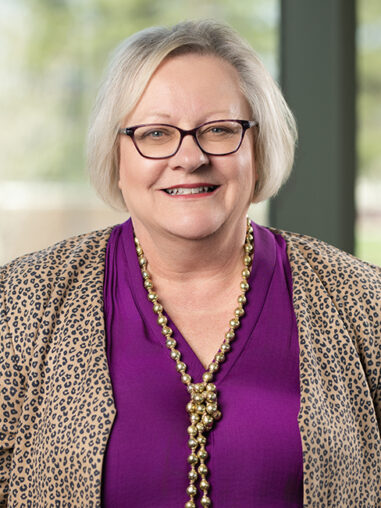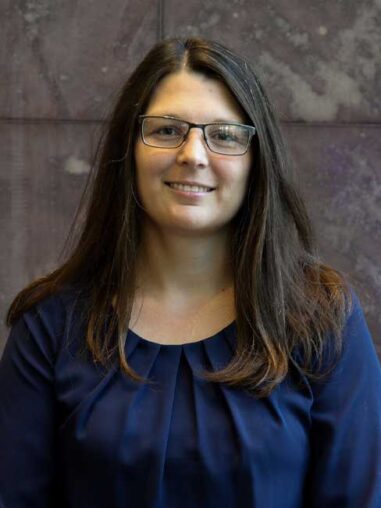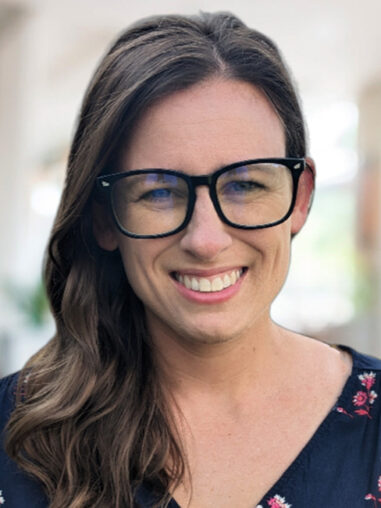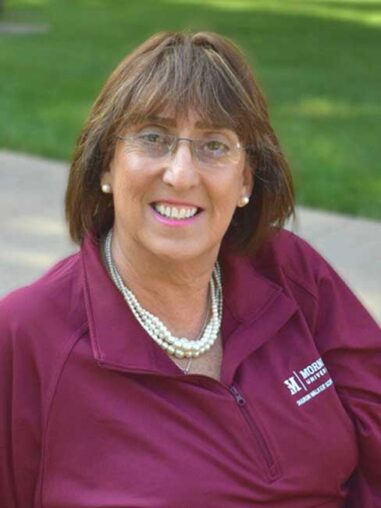
EARN THE IOWA K-12 ENGLISH AS A SECOND LANGUAGE ENDORSEMENT 100% ONLINE
Designed for K-12 teachers, this program prepares educators to work with learners whose first language is not English by enhancing knowledge and skills in linguistics, instructional strategies, assessment, culture, school and family engagement, and action research. Iowa teachers may also choose to pursue a Master of Arts in English as a Second Language , using the coursework completed in this endorsement program.
Program Details
CREDITS
18
COST PER CREDIT
$365
COURSE FORMAT
Online
PROGRAM HIGHLIGHTS
100% Online, Asynchronous Delivery
Courses Offered Every Fall, Spring, Summer
Finish in 18 months or Less
Rolling Admissions Process
Led by Experienced, Qualified Faculty
COURSES
Orientation to graduate education programs and readiness for online learning to be completed during the student’s first semester of enrollment. Expectations related to scholarly writing skills are introduced.
Correlates policies and legislation with historical and contemporary perspectives on cultural and linguistic diversity throughout the United States. Identify characteristics of culturally responsive teachers and culturally inclusive environments. Presents ways in which teachers, who are advocates for students and families, can support the unique strengths and needs of culturally and linguistically diverse (CLD) families.
Provides an overview of the history of language teaching and identifies theories and models of first and second language acquisition used to address the specific needs of Emergent Bilinguals (EBs). Presents current research, policy, and legislation related to language learning and teaching. Addresses the identification process of English Learners (ELs) and ways to assess first and second language proficiency.
Examination of approaches, methods, and strategies used to teach English Learners (ELs) in English as a Second Language (ESL), Bilingual, and English as a Foreign Language (EFL) programs. Identify program goals, standards, curriculum, and outcomes. Reviews best practices related to the development and implementation of formative and summative assessments used with culturally and linguistically diverse students (CLDs).
Integrates knowledge, skills, and strategies related to content area instruction and assessments for use with Emergent Bilinguals (EBs) who are learning in Newcomer, Bilingual, Dual Language, ESL, Sheltered and Mainstream settings. Presents information related to SDAIE methods, the CALLA approach and the SIOP Model. Addresses content-based ESL strategies.
Focuses on effective second language teaching which requires that language learning happens in meaningful contexts and that language is used for communicative purposes. Addresses the linguistic areas of phonology, morphology, syntax, and semantics and the receptive and productive language skills in both the L1 and L2. Special emphasis is placed on pragmatics, psycholinguistics, and sociolinguistics.
Capstone experience designed to demonstrate synthesis of knowledge, skill, and practice. Includes a 20-hour practicum within an ESL classroom setting to enhance the learned skills and knowledge base under the guidance of a collaborating teacher. Includes philosophy, programming/curriculum, student needs and assets, formative and summative assessment, best practices for teaching English to ESL students, cultural competence, advocacy, policies, and appropriate practices.
*option to complete TESL 642 in place of TESL 640
Develops knowledge, skills, and resources to effectively engage with the families of English Language Learners (ELLs) to leverage the power of home literacy in promoting student academic achievement. Explores the crucial role of home language and cultural practices in literacy development, investigates the impact of family involvement in literacy activities, develops advocacy skills and strategies for building strong home-school partnerships.
*option to complete TESL 642 in place of TESL 640
Additional Program Details
Admission Requirements
- Complete an application to our program.
- A bachelor’s degree from a college or university accredited by an institutional accrediting agency recognized by the United States Department of Education.
- A minimum gpa of 2.75 on a 4.0 scale is required for admission. If an applicant does not have a 2.75 cumulative GPA, the last 60 hours of coursework completed will be considered under the same requirements.
- We accept official electronic transcripts emailed to soe@morningside.edu directly from either an institution, (i.e., Registrar’s Office), or from an established third-party provider.
- A valid teaching license; please email directly to soe@morningside.edu.
FINANCIAL AID
There is a $150 non-refundable clinical course fee (required for some endorsement programs) and a $150 graduation fee (a one-time fee for degree programs) and a one-time Graduate Orientation Course fee of $230.
Teach Grants
Students seeking a master’s degree in education may be eligible for a federal TEACH grant.
Other Aid
Students enrolled in at least five (5) credit hours per term may be eligible for the following:
Additional information may be found online at the following websites:
- FFEL and Direct Stafford Loan Cancellation for Teachers (up to $5,000 or $17,500) and/or Federal Perkins Loan Teacher Cancellation (up to 100%)
- Teach Iowa Scholar Program
- Federal TEACH Grant (Loan) Program
Professional Licensure Disclosure
Degree or endorsement programs offered by the Sharon Walker School of Education at Morningside University that prepare students for licensure as educators are designed to meet the licensure standards set by the Iowa Department of Education.
SCHOOL OF EDUCATION CONTACTS
Contact Us
Morningside University
Sharon Walker School of Education
1501 Morningside Avenue
Sioux City, IA 51106






